TR&I Working from Home: A Break for the Border
Changes and challenges as COVID-19 remains with us
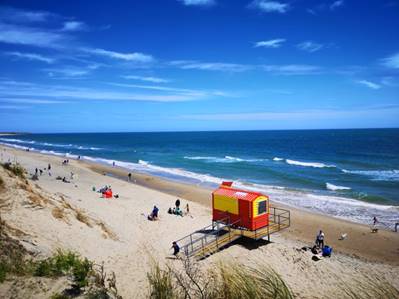
As the summer continues, we are still faced with challenges in our collective efforts to deal with COVID-19. So far in our Working from Home series, we have explored some of these challenges, taking guidance from the wealth of knowledge of our researchers and academics at Trinity College Dublin. This has included advice on safety and ethics in the workplace (wherever that may be), as well as discussions about maintaining the health and wellbeing of people of all ages in the face of the crisis.
Now, some of the restrictions have eased and we have a little more freedom of movement. However, given the recent rise in the number of cases, many are still wary and taking a cautious approach. This third edition in the TR&I Working from Home series will explore ideas about how the lifting of some restrictions affects people’s experiences of social relationships. It will consider personal values and priorities, as demonstrated through the things people choose to do first once there is increased freedom of movement and more opportunities for social interactions.
The Government postponement of progression to Phase 4 suggests a prioritisation of the public’s health and wellbeing. Although it is worrying for those whose income and financial stability rests on the reopening of businesses, this pandemic has emphasised the importance of focusing on our health. There have been both positive and negative aspects to the restrictions on movement for different people.
I spoke to Dr Lorraine Swords from the School of Psychology about the effects of the pandemic in Ireland on families, especially those with younger children. According to Dr Swords, “in recent months the pandemic has meant that family homes have become the containment hub for family members coping with a variety of COVID-related stresses. They have also extended their primary purpose to become workplaces, classrooms, fitness studios – whatever was needed so that some semblance of normal daily life could continue in abnormal times.”
Dealing with uncertainty and perceptions of identity
For many people this period, though bringing its stresses and strains, has been relatively manageable. Others have experienced wage cuts or delays, job losses, health problems including mental health issues, domestic violence, or bereavement. From a research perspective, Dr Swords says that it is important to “monitor the wellbeing status of parents and children over the long term so that the impact of the quarantine period and the ongoing social distancing measures can be studied.”
Little research has been carried out on children and adolescents in a context such as this. Dr Swords and her colleague Dr Elizabeth Nixon, along with Dr Caroline Heary from NUI Galway, are “about to launch a study of adolescent wellbeing over the coming months as they adjust this ‘new (ab)normal’. Of key interest will be how the quality of relationships with parents, siblings and peers can exacerbate or buffer the negative impact of COVID-related stresses on psychological functioning.” Dr Swords points out that a central feature “is the anticipatory anxiety it creates for those considering the uncertain times ahead.”
I discussed this with Dr Rahul Sambaraju, also from the School of Psychology, whose research focuses on social psychology in relation to times of crises. He also emphasises the effects of this ongoing sense of uncertainty, which has meant that “how we make sense of ourselves, our actions, and our relationships with others are in flux.” As individuals, we exist in a network of social relationships such as the family (immediate and extended), friend groups, employment groups, and other networks, as well as our relationship as a citizen to the State. Through and against the backdrop of this context, Dr Sambaraju says, we continually re-imagine ourselves and our identities. Our relationship to the State has had an increased significance to us in recent months with, for example, the Government announcements and instructions, to which we continually look for guidance. According to Dr Sambaraju, “we make sense of the pandemic and its relevance for us in relation to how we see ourselves and others. The mutually constitutive nature of the crisis and our identities is central to understanding the impact that the pandemic has had, and will continue to have, on our actions and relationships.”
Embracing the Moment
We do not know what the coming months will look like, or if we will be required to move back to a more restrictive phase of the COVID response. For now, from our perspective, the team at TR&I have been using the new phase to do things they have not been able to do for the last few months. The following photos from the team highlight core values and primary things missed while lockdown was in place: being out in the Irish countryside and spending time with friends and family. These photos suggest a team who are happy spend time with loved ones, to see new things, and also to revisit beloved places.
TR&I Director Leonard Hobbs made it to the Atlantic, “the lovely Warren beach by Rosscarberry in West Cork.”
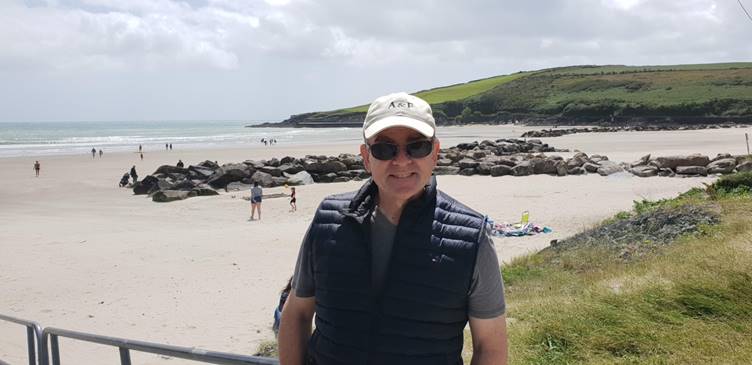
Head of OCPKE Declan Weldon also headed for the sea: “Now that I can get back to the sea, I’ve been beachcombing.” He challenges us to identify the type of rock pictured below, found on an Irish seashore on the East Coast.
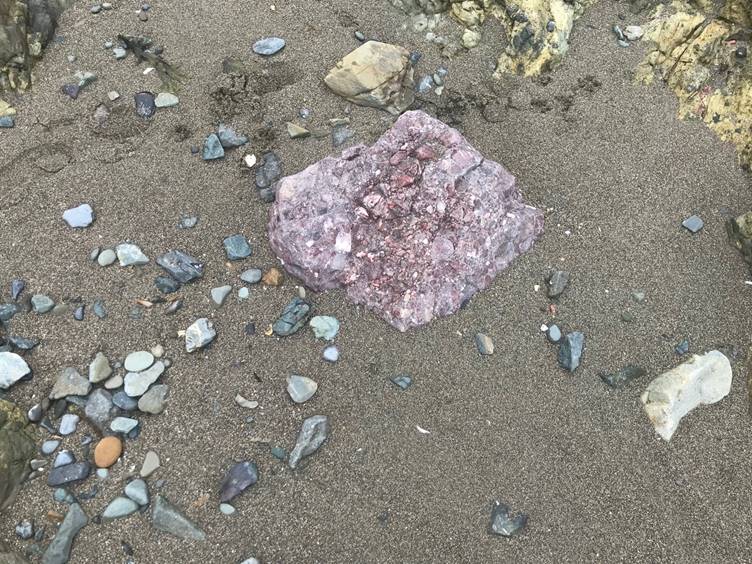
IP Development Manager Aoife Tierney was back rowing again with her teammates “after a five-month hiatus. And we stopped to admire the view!”
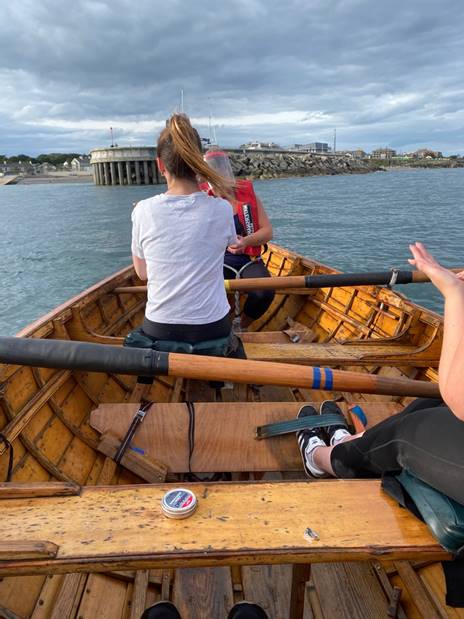
Also out on the water was Research Project Officer Gill Marmelstein and her family, which includes the adventurous Snoopy: “This is what we Marmelsteins do in our spare time – try to convert everyone from being a landlubber to a salty sea dog (pun intended).”
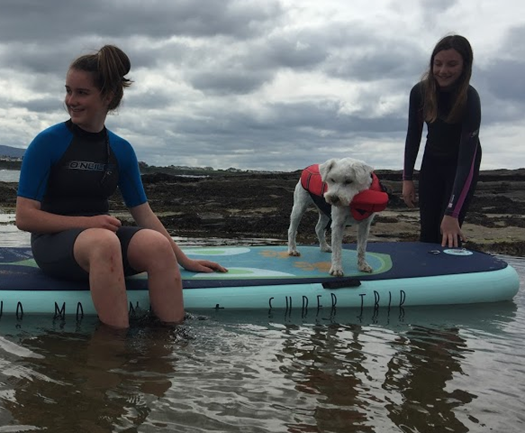
Another one for the seaside was Elaine Pereira Farrell, Research Programme Officer for the Trinity Long Room Hub. Elaine headed for the coast in Co. Wicklow, and was “delighted to see the sea again at Brittas Bay.”

And from Maiara De Lima of the Contracts Office: “First outing to Bray once the 20K restriction was lifted, welcomed by a bevy of swans. Just lovely!’
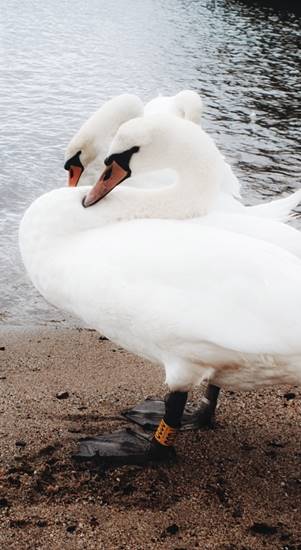
Research Project Officer Sarah Nangle headed inland: “Now that county restrictions are lifted, I was able to visit my farming family in Westmeath – green open spaces were a sight for sore eyes after 100+ days in the city!”
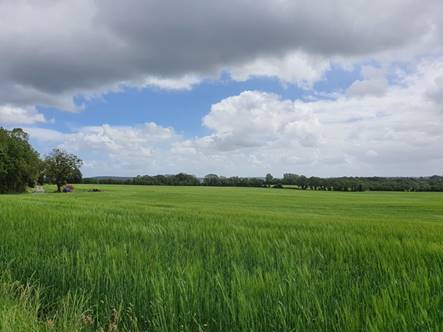
TTO case manager Graham McMullin and his family trekked all the way from city to countryside: “From Marley to Glenmalure. Four stages complete over three days. Roughly four and a half hours per day. 60km walked. Three more stages to do.”
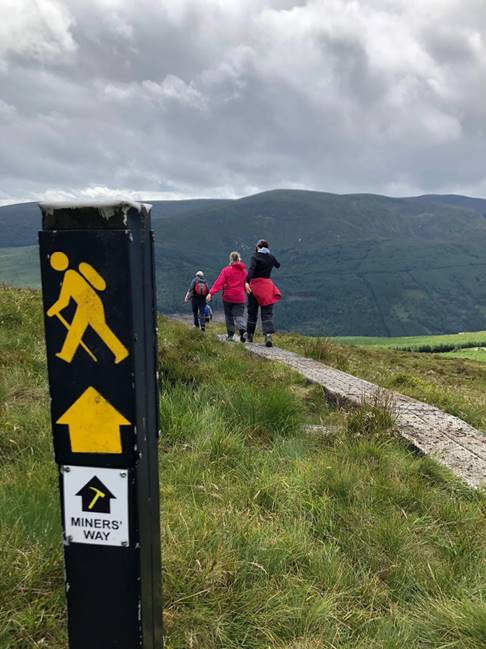
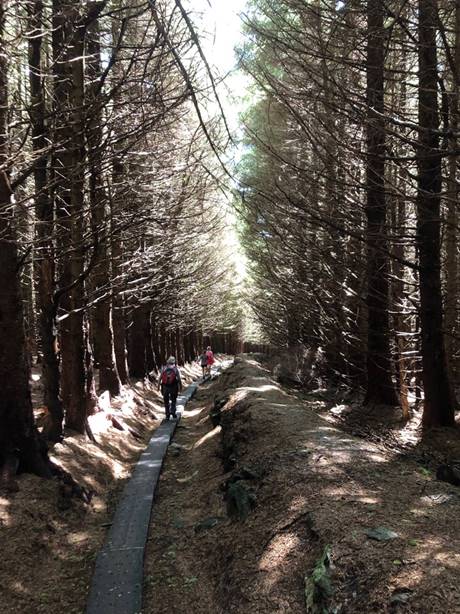
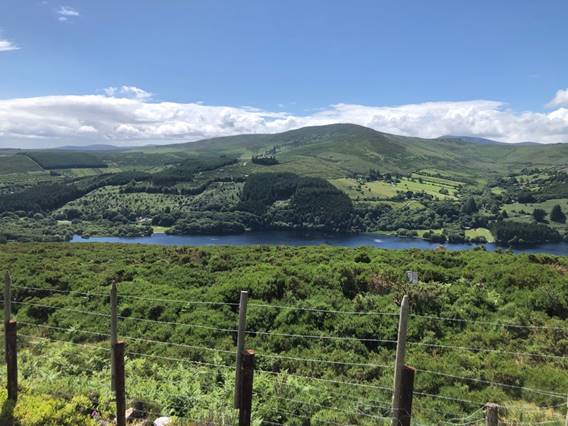
And while there are lots of places now that we can now visit and explore, sometimes the best adventures happen at home: TR&I office manager Lorraine Hughes was convinced by her daughter to add a new member to their family. His name is Beans.
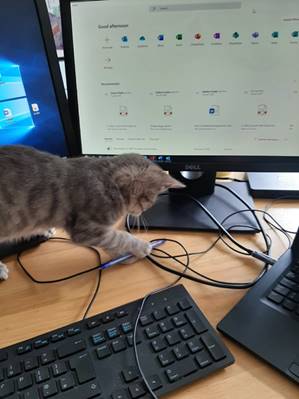
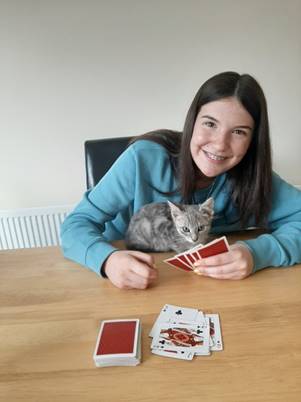
According to Lorraine, he helps at work and “is a genius at cards.” He is not so good at making friends with Bruce. Keep it up, Beans.
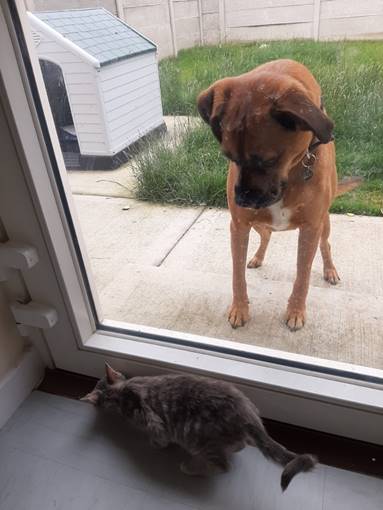
The Importance of Family
Dr Swords emphasises the importance of conducting research into the impact of the pandemic on children and adolescents, “who are deemed to be one of the most vulnerable groups to the indirect, non-medical risks of the pandemic.” While to them (and to many adults as well), the threat of COVID-19 is so intangible it is sometimes difficult to conceptualise, it is “significant enough to close down schools, disrupt routines, restrict travel or any out-of-home activities, and necessitate physical and social isolation from friends and extended families,” all of which can “induce significant negative emotional and behavioural responses” in young people.
While the Government’s “We’re all in this Together” messaging has helped create a sense of community and common bond, it does not account for the existing inequalities in Irish society. Dr Swords suggests that adults and children from disadvantaged or marginal socio-economic contexts, or those with pre-existing health difficulties or specific care needs, are more likely to be negatively affected: “For parents who may be already dealing with heightened levels of stress – juggling the pressures of working from home while caring for and educating their children – taking care of children with additional needs, with limited social support and services, can be particularly difficult. Special attention needs to be given to these families going forward so as to avoid exacerbating pre-existing disadvantages.”
According to Dr Sambaraju, the pandemic “will have various impacts on us depending on who we are. While we are all facing the consequences, we will do so in various ways. Our identities and relationships as a consequence of these will be important.” Dr Sambaraju suggests that how the pandemic has affected our social relationships will not really be understood until further research can be conducted, and until we have been able to view it retrospectively. So, there is much research to be done.
Dr Kate Smyth
July 2020

